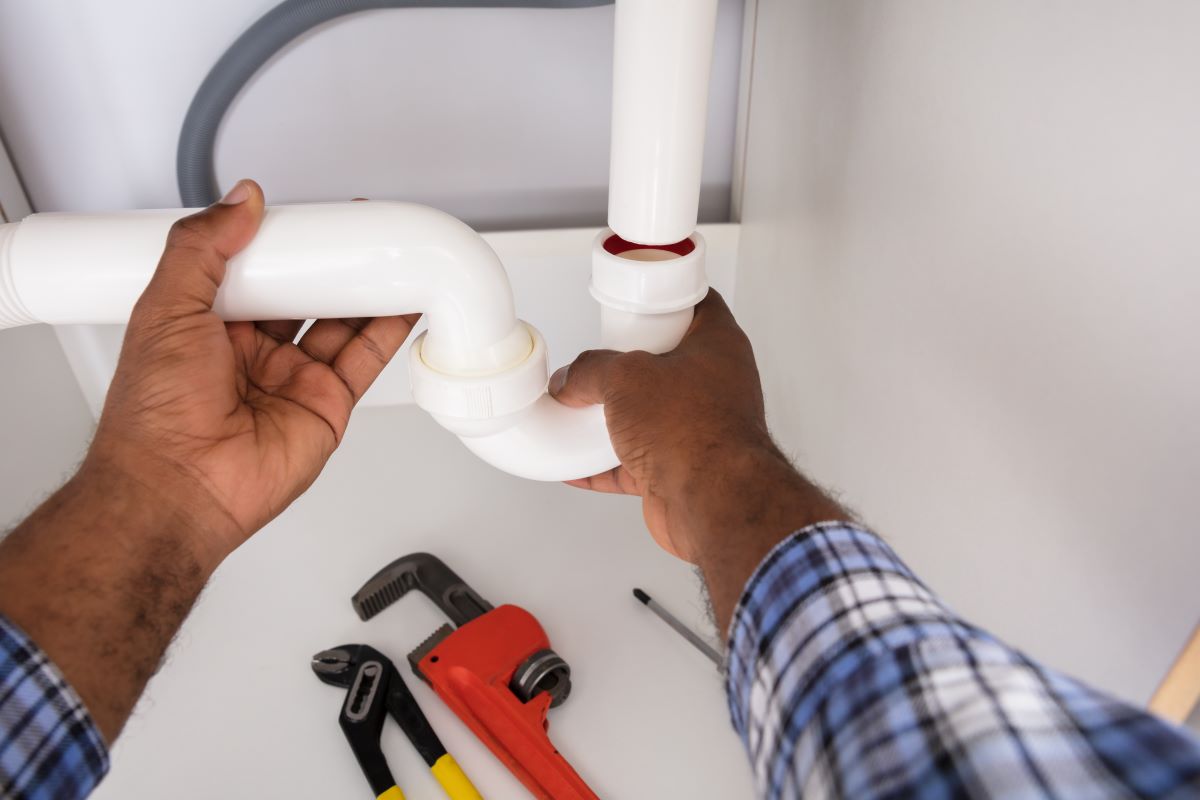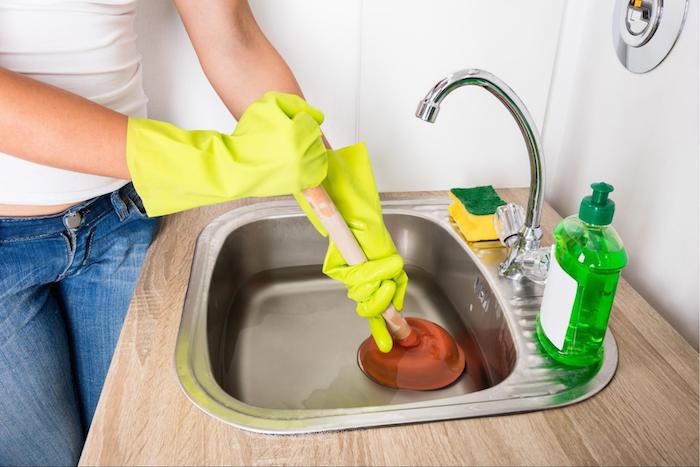Quick Fixes For A Slow-Draining Sink
Quick Fixes For A Slow-Draining Sink
Blog Article
Have you been on the lookout for content concerning 7 Ways To Fix A Slow-Draining Sink Before You Call A Plumber?

Introduction
We've all existed: You're cleaning your teeth or washing your hands, and you observe the water merging in the sink. Instead of rapidly swirling down the drain, it remains, turning your once-refreshing morning regimen into a miniature swamp scene. A slow-draining sink isn't just aggravating; it's usually an indication of bigger pipes issues lurking underneath the surface area. The good news is that the majority of slow-draining sinks can be taken care of with a little know-how, a few basic tools, and some persistence. Ready to tackle this project head-on? Let's roll up our sleeves and dive right in.
Recognizing the Causes of a Slow-Draining Sink
Before you begin poking around in your pipelines, it helps to understand what may be creating the downturn. Understanding the origin makes it simpler to select the ideal fix.
Devices and Products You'll Require
The right devices make all the distinction. The good news is, you will not require a totally equipped plumber's van to do the job.
Step-by-Step Overview to Taking Care Of a Slow-Draining Sink
Now, allow's enter into the nitty-gritty. This detailed process will certainly direct you via simple techniques to restore your sink's water drainage.
Step 1: Eliminate and Clean the Stopper
Typically, the stopper (that little plug you push down to obstruct water) is the very first perpetrator. Remove it carefully and wipe any hair or substance trapped around its base. Wash it extensively prior to putting it back in place.
Step 2: Use a Plunger to Remove Debris
Got that plunger ready? Setting it over the drain and give it a few firm pumps. The concept is to develop suction that can loosen up any type of blockage. If you see bits of particles drifting up, you're on the best track.
Step 3: Try a Drainpipe Serpent or Cable Hanger
If the bettor does not do the trick, it's time to draw out the drain snake. Gently feed it right into the drainpipe and spin as you go. You may really feel some resistance-- that's most likely the obstruction. Maintain turning and drawing until you get rid of the blockage. If you don't have a drain snake, a corrected the alignment of cable wall mount can work in a pinch.
Tip 4: Apply a Do It Yourself Drainpipe Cleaner
An all-natural cleaner made from baking soda and vinegar can break down recurring crud. Pour half a cup of cooking soft drink right into the drain, complied with by half a mug of vinegar. Let it fizz for around 15 mins, after that flush with hot water. This chain reaction commonly does wonders for minor clogs.
Tip 5: Reassemble and Check the Sink
Placed everything back together and run the tap. Does the water currently swirl down the tubes at a respectable speed? If yes, provide yourself a pat on the back. Otherwise, do not misery-- there are still a few even more dress up your sleeve.
Important Devices for Do It Yourself Services
A plunger is your go-to starting factor. A little, sink-sized bettor produces suction that can dislodge minor obstructions. For more persistent clogs, a drainpipe serpent (in some cases called a plumbing technician's auger) works marvels. A set of gloves, a flashlight, and maybe a set of safety goggles are additionally handy.
Suggested Cleansing Solutions
Moderate meal soap and hot water can aid break down oily build-up. A combination of baking soft drink and vinegar is a time-tested natural remedy, and chemical cleaners supply a more environmentally friendly method. Maintain chemical drain cleaners as a last hope, as they can be severe on your pipelines.
Common Perpetrators Behind Slow Drainage
So, what's clogging things up? Usually, it's a combination of day-to-day debris-- believe hair, soap residue, tooth paste residue, and leftover food bits. Gradually, these little bits collect and hold on to the pipe walls, gradually narrowing the passage and making it harder for water to go through. In some cases, natural resource from tough water can likewise include in the gunk, creating the excellent tornado for persistent blockages.
When is it Time to Do Something About It?
If you see the water draining pipes slower than normal, it's a good idea to interfere sooner rather than later on. Waiting also long could cause finish blockages, undesirable odors, or perhaps pipe damage. If the water takes more than a few seconds to clear out after turning off the tap, consider it a warning and get ready to place on your do it yourself hat.
Safety First: Precautions and Prep work
Before you launch into unclogging setting, consider safety and security. You're managing possibly unclean water and debris, so slip on a set of handwear covers. If you're utilizing chemical cleansers, make certain the area is well-ventilated and adhere to the guidelines on the tag.
Safety Gear and Work Space Setup
Set some old towels or dustcloths around the sink area to catch dashes. Eliminate any type of products that could enter your way, like soap dispensers or toothbrush owners. Ensure you have good lighting-- grab a flashlight if needed.
Different Approaches for Stubborn Clogs
Not all blockages are created equal. If your sink still refuses to coordinate, consider these different services.
Sodium Bicarbonate and Vinegar Technique
We already touched on this, but it's worth noting once again. This mild, green approach is safer than chemical cleansers and frequently quite effective.
Enzymatic Drain Cleaners
Enzyme-based cleansers make use of natural microorganisms to digest organic matter. They're an exceptional selection if you're seeking to avoid harsh chemicals. Simply keep in mind, they may take a bit longer to work their magic.
Chemical Drainpipe Cleaning Company: Pros and Cons
Chemical cleansers can blow up with challenging blockages quick, yet they're not without downsides. They can produce warm and fumes, damages pipelines if utilized exceedingly, and present ecological threats. Use them moderately, and always comply with the directions carefully.
Safety Nets to Keep Your Sink Flowing
Avoidance is the very best cure. By taking on a couple of easy behaviors, you can keep your sink from reducing in the first place.
Normal Cleaning Habits
Clean down the sink basin and fixture location on a regular basis. Get rid of hair or food bits before they have a possibility to wash down the drain.
Preventing Hazardous Compounds Down The Tubes
Think twice before unloading coffee premises, oil, or fibrous vegetable scraps down the sink. These wrongdoers hold on to pipe walls, producing blockages in time.
Regular Maintenance Checks
Arrange a quick regular monthly assessment. Run warm water through the sink for a few mins, paying attention to the circulation. If it appears sluggish, act fast prior to it comes to be a full-on clog.
When to Call a Specialist Plumbing Professional
Often, regardless of just how hard you try, that clog simply won't budge. That's when it's time to bring in the pros.
Indicators That Indicate an Extra Significant Issue
If your sink drains gradually in spite of several attempts, or if you notice water supporting in various other components (like your shower or toilet), you might have an extra serious plumbing problem hiding much deeper in the system.
Balancing Do It Yourself Initiatives with Professional Help
While do it yourself can conserve you money and use a sense of achievement, there's no shame in calling a specialist. A professional plumber can evaluate your entire pipes configuration, guaranteeing there's no underlying damage or long-lasting problem that can cost you a lot more in the future.
Contrasting Expenses and Long-Term Solutions
Prior to making a decision, consider the big picture. A cheap, quick fix may solve the issue momentarily, however investing in an extra permanent option could conserve you money and anxiety in the future.
Considering the Expenses of Do It Yourself vs. Expert Solutions
DIY repairs often cost little more than the rate of a bettor or a bottle of baking soft drink. Specialist solutions, on the other hand, included a cost however might prevent repetitive concerns and expensive repair services later on.
Investing in High Quality Fixtures and Upgrades
If your sink's design adds to frequent clogs, it could be worth upgrading to higher-quality fixtures or altering the plumbing design. Consider this an investment in your home's functionality and comfort.
Conclusion
A slow-draining sink can seem like a minor inflammation, but it's typically an indication that your pipes requires a little tender loving care. By understanding the root causes, employing the right devices and strategies, and committing to basic safety nets, you can maintain your sink moving easily. And when all else fails, never think twice to employ an expert-- your home's plumbing deserves the financial investment in care and upkeep.
Three Common Ways to Fix a Slow Drain
Baking Soda Method
Boil a full pot of water. Measure out cup of baking soda and pour it down the drain. Then take cup of the magical cleansing substance known as white vinegar and drop that down there too. Allow the mixture to fizz in the drain for five minutes as the vinegar and baking soda combine. Now dump in that whole pot of boiling water. This combination of cleaning substances should clear out anything that is causing your sink to drain slowly. If it doesn t...
Zip-It
If the baking soda method doesn t clear out your drain, it may be because a significant amount of hair and/or other debris has collected there and you need to remove it. Purchase a Zip-It tool at any home improvement or hardware store and insert it into your drain. It will catch any collected hair or debris that s blocking the flow of water. Pull it out. If it s got a big clump of hair, etc. on the end, you ve probably got your culprit.
Drain Cleaner
If these methods don t work, there is the standard drain cleaner that you can also buy in a hardware store or even your local grocery store. It s better if you can use a household solution, but these drain cleaners often work in a pinch. They re very simple to use. You generally just dump them in your drain and wait. If even this method is not effective, it may be time to call the plumber.
https://www.mrrooter.com/oneida/about-us/blog/2017/july/three-common-ways-to-fix-a-slow-drain/

I ran across that blog post about Solved! How to Fix a Slow Sink Drain when doing a search on the internet. Loved our entry? Please share it. Help others check it out. We recognize the value of reading our article about How to Fix a Slow Draining Sink.
Call Today Report this page